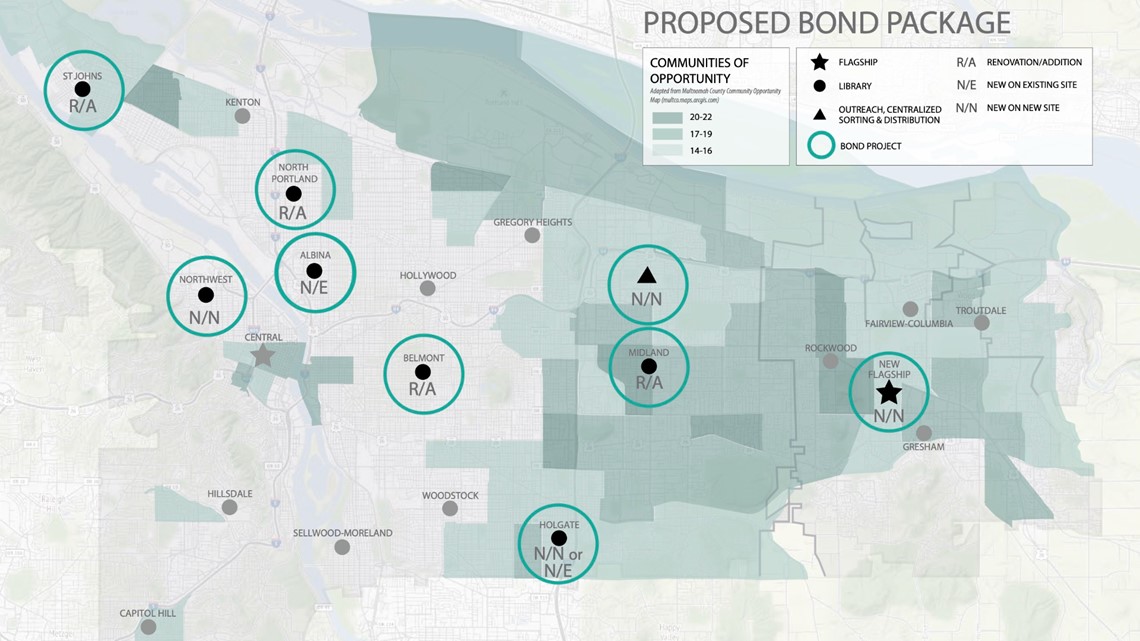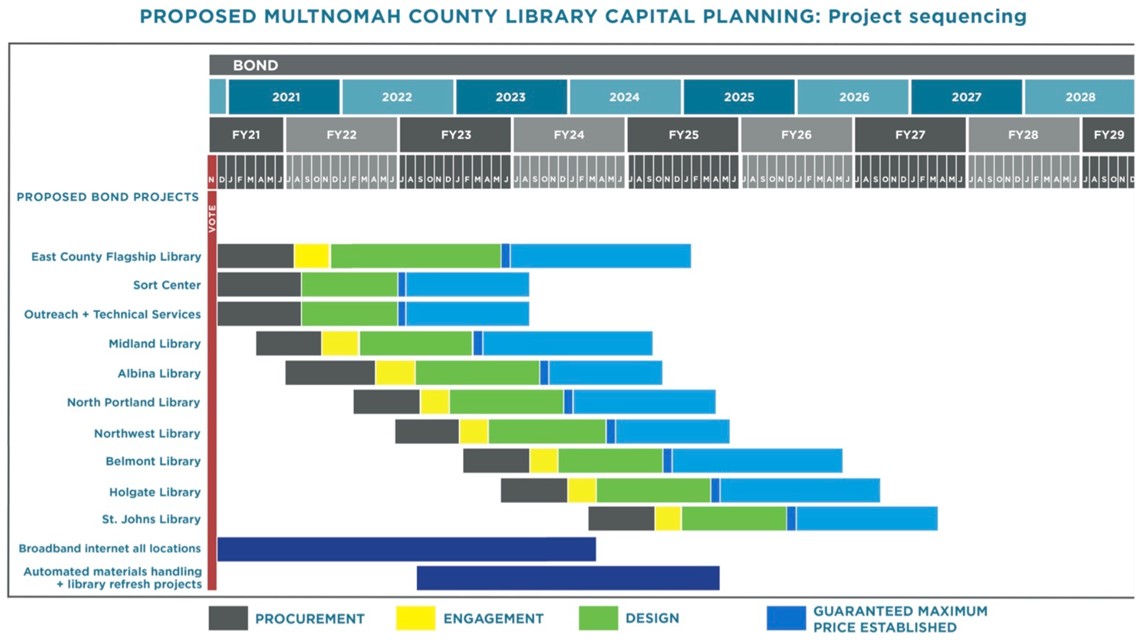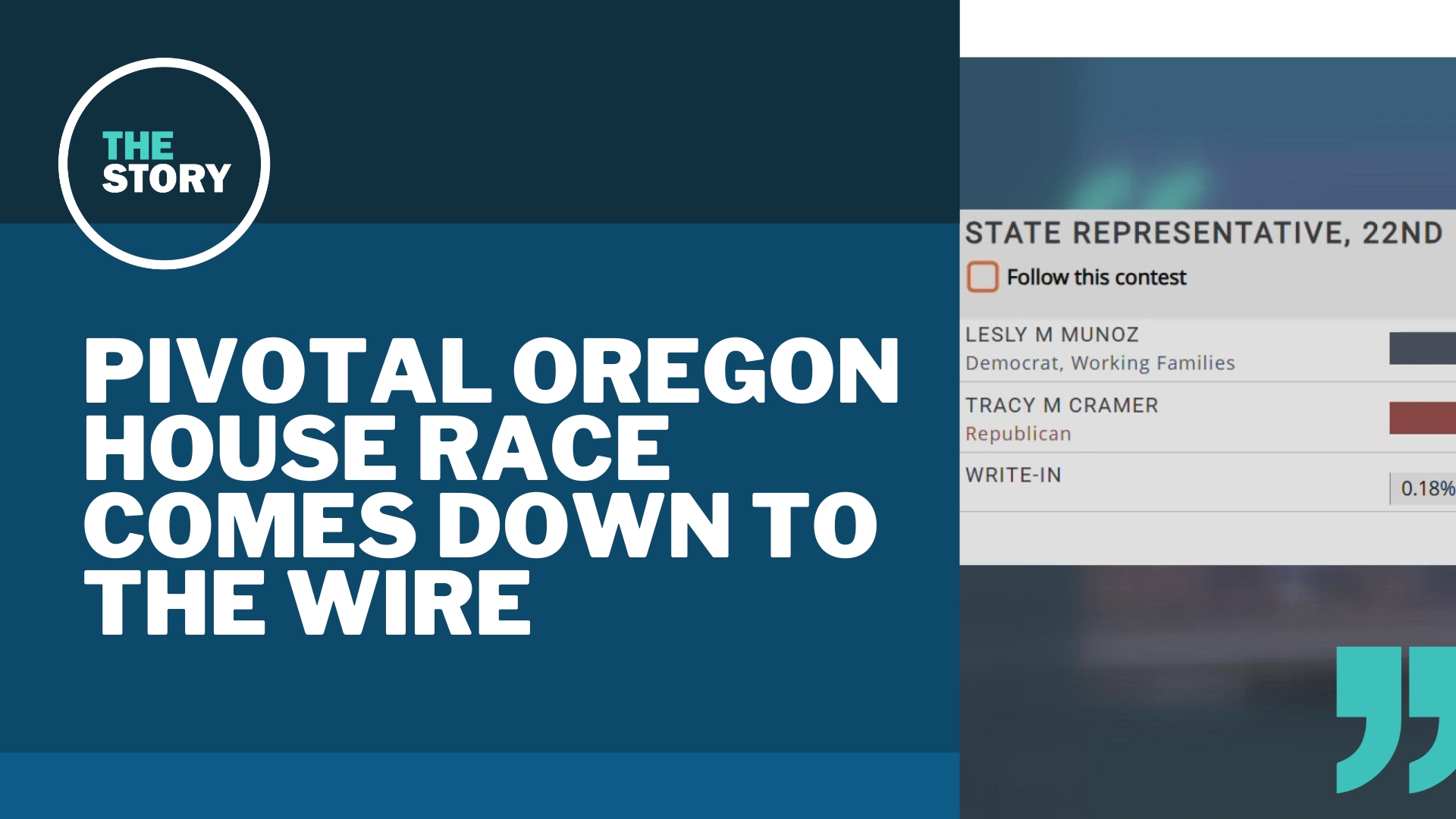PORTLAND, Ore. — As of 2020, the Multnomah County library system was the fourth-busiest library system in the nation. Yet, the county’s library space has not expanded since the last library bond in 1996.
Currently, all 19 Multnomah County libraries could fit into Seattle’s downtown library, with room to spare.
But that could change this election season, as Multnomah County residents are voting on Measure 26-211, which would increase library space by 50% through expansions of seven library branches, and the development of a new East County flagship library in Gresham. If passed, the bond measure would cost $387 million and will cost property owners an average of 61 cents per $1,000 in assessed property value for eight years.
Bond proceeds would go toward creating more library space in the currently underserved parts of Multnomah County east of Interstate 205, where 40% of Multnomah County residents only see 20% of library resources.
Since 2016, library leaders gained input from diverse community groups, consulted with experts and conducted an independent review of the plan with a blue ribbon committee of local civic and business leaders.
In June, the Library District Board referred the library bond measure to the November ballot, to finance a new Gresham library by 2025 and expand branches including Midland, Albina, North Portland, Northwest, Belmont, Holgate and St. Johns.


“Equity ran through all of this planning to ensure that the library resources were allocated to the parts of the city that need them the most,” said Ruth Shelly, director of Portland Children's Museum and member of the Blue Ribbon Committee.
The measure is supported by groups like the Asian Pacific American Network of Oregon (APANO), Unite Oregon and the Latino Network. There is no organized opposition against the measure.
“The library bond means more room for homework help, programs for people learning English, and activities for students and teens to thrive,” Ricardo Lujan-Valerio, director of advocacy at the Latino Network, said on the measure’s website.
The measure’s supporters hope to provide more space, so families are not turned away from story time, reading classes and resume-building classes, especially in the wake of the pandemic. Though not every branch would be renovated, bond proceeds would outfit every library with high-speed, no-cost internet access and additional computers.
The COVID-19 pandemic has underscored the importance of internet access, Shelly said.
“There's a terrible digital divide, and families are coming to library parking lots just to be at an internet hotspot.”
The bond would also finance automated book handling. Currently, when a customer orders a book from another branch, that book gets touched by about eight hands before arriving at their home library. The measure would replace those people with machines and redeploy them to more public-facing roles in the libraries.
With the proposed library expansions, operational costs like staffing would only increase by 5%, while library space would increase by 50%. This is largely because fewer staff will be needed to handle books, and the new library designs will feature more open spaces where staff can oversee a larger space than in older buildings.
According to a recent DHM Research poll conducted on behalf of Oregon Public Broadcasting, the library measure fared the worst out of all of Multnomah County’s tax measures. That measure was losing by five points, with 39% of respondents saying they would vote yes and 44% saying they would vote no.
John Horvick, director of client relations and political research at DHM, suggested that voters may not see libraries as a priority, since they are not going to physical libraries right now. Voters have also expressed concerns about taking on more property taxes in a time of economic uncertainty.
Even with many Multnomah County residents facing financial hardships due to the pandemic, Shelly said there is no time to waste passing this measure and expanding community spaces.
“The pandemic has really underscored how important libraries are, as centers of community engagement, as resources for lifelong learning, as sites of human connection,” Shelly said. “As we come out of the pandemic those attributes are going to be even more important.”
If the measure is passed, Multnomah County Libraries will began a process of community engagement, facility design and construction, with most expansions done by early 2025.





